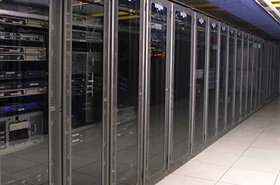Technical real estate has kept businesses alive during the pandemic with global digital dependency being greater now than ever before.
Those of us who work on the frontlines of technology, and certainly within the data center industry itself, have always had an appreciation for the value of data centers and the applications and data stored within.
In recent times, the industry entrusted to manage and store the cloud has become one of the cornerstones to businesses and industries at large across the globe, keeping organizations operational and the economy alive. In this current dual speed economy, data centers are seeing strong growth and have caught the attention of the investor world as a mainstream asset class.
Worldwide, we’ve never been more dependent on data centers and the cloud to work, collaborate and socially interact. At the same time – with a fragile global economy – it’s absolutely pertinent that we secure this asset, our new utility, as it becomes a key driver for economic growth and the new economy.
Government recognition
With data centers elevated to a new status, Governments around the world need to recognize this and apply appropriate recognition, certification and standards to this infrastructure to ensure it is kept secure.
We’ve already started to see signs of this happening – in its launch of a new cyber security strategy in Australia for example, the Federal Government specifically called out data centers as critical infrastructure, and legislation is expected to follow that will help ingrain security and sovereignty into the fabric of data centers and the investments companies make in them.
This kind of legislation can help ensure that, in the event of a crisis – whether it be a pandemic or a natural disaster – data centers can retain access to power, people and other resources to keep going and keep businesses and governments operational.
During natural disasters – a major theme of the past year – data centers, which consume a significant amount of power and are built to be able to operate if and when the electricity grid goes down, can support the electricity network by turning on their backup generators, an act recently requested by the California Governor Gavin Newsom amid an escalating wildfire crisis.
Enhanced recognition also means a level of security is needed to ensure these assets are protected. Just as water, energy and other utilities are prioritized in terms of security, the same principles and mindset will come to data centers.
Of course, those security threats are largely virtual – physical security is well catered for across the industry, but the real threats lie in cyber security, and global state based tensions are leading to conflict and accusations of cyber espionage.
Sovereignty to address global tensions
Unfortunately, while most of us would like to see global cooperation take precedence at times like this, we’ve seen hostility between a number of nations develop or grow during the pandemic, leading to an increase in nation state cyberattacks. A recent report across 17 countries found that nation-state actors were exploiting the new remote work environment.
This has turned governments’ focus to who has access to the data within their nations’ data centers, and to which jurisdiction providers are subject.
For global cloud and data center giants, this will likely mean deeper partnerships need to be formed with local, sovereign operators to ensure they’re compliant with the new norm and meeting market demand among government and enterprise customers.
And for those operators – and the regions they operate in – it spells new opportunities to build the intelligent economy with specialized skills and jobs onshore. A great incentive to address one immediate and one long-term issue for countries across the globe.
As we continue to adjust to a newly enhanced digital global economy, we must ensure that the technical real estate we entrust to manage and store data in the cloud gets the same protection provided to the power and water we consume.




